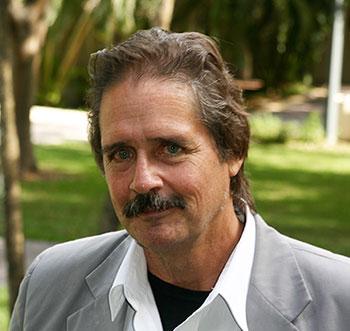
Law and economics scholar Fred McChesney died last Thursday at age 68. He was a first-rate scholar, a wonderful friend, and an engaging conversationalist. I’m so glad that he called me up when he was in Monterey a couple of years ago. I went to his hotel and had a great visit with him and his lady friend. I remember feeding the parking meter for an hour, thinking that would be enough, and then finding the conversation so interesting and fun that I went out after an hour and a quarter and fed it for another hour.
Here’s a great write up of some of his accomplishments.
Fred wrote the antitrust article for The Concise Encyclopedia of Economics. Out of the over 160 entries, it is one of my 20 favorite pieces. It covers a lot of territory succinctly while still giving the essential economic analysis on each issue.
He also wrote 10 articles for the Econlib Feature Article series. My favorite two are “Armen Alchian: An Economist-Lion in Winter” and “Smoke and Errors.”
Here’s a great paragraph from “Armen Alchian: An Economist-Lion in Winter”:
Perhaps no other economist of our time has given as much attention to costs as has Armen Alchian. He discovered, while working at the RAND Corporation after the war, that military engineers and economists disagreed over the efficient ways to produce armaments because their concepts of cost were quite different.6 Engineers registered cost as a function of total output, and so saw costs as generally declining. But to economists, the costs associated with different levels of output depend on the rate at which they are produced: Producing the same volume but in a shorter period of time would be more expensive, ceteris paribus. Moreover, once one recognized the importance of time for reckoning cost, one had also to take into account the present value of the outlays required to produce, outlays that would vary depending on the timing of production. All of this Alchian explained in one of his most important articles.
Here are two great paragraphs from “Smoke and Errors”:
In short, good old-fashioned rent seeking accounts for the rise of public fire-fighting. It explains as well the survival of an entity that, more and more, is losing its raison d’être. Modern building materials are relatively fire-proof, while clothing and other fabrics are flame-retardant. Municipal codes increasingly require sprinkler systems, smoke detectors and other devices to reduce the incidence and costs of fire. So today’s fireman has much less to do. The number of home and building fires has plunged 40 percent in the past two decades.
With fewer fires to fight, one would expect to find fewer fire-fighters–in a private firm, anyway. But not in a public agency. Despite the 40-percent decline in fires, in the past twenty years the number of paid city fire-fighters has increased by 20 percent. Only in government firms does employment go up as demand and output decline.
HT2 Tyler Cowen.

Comments are closed.